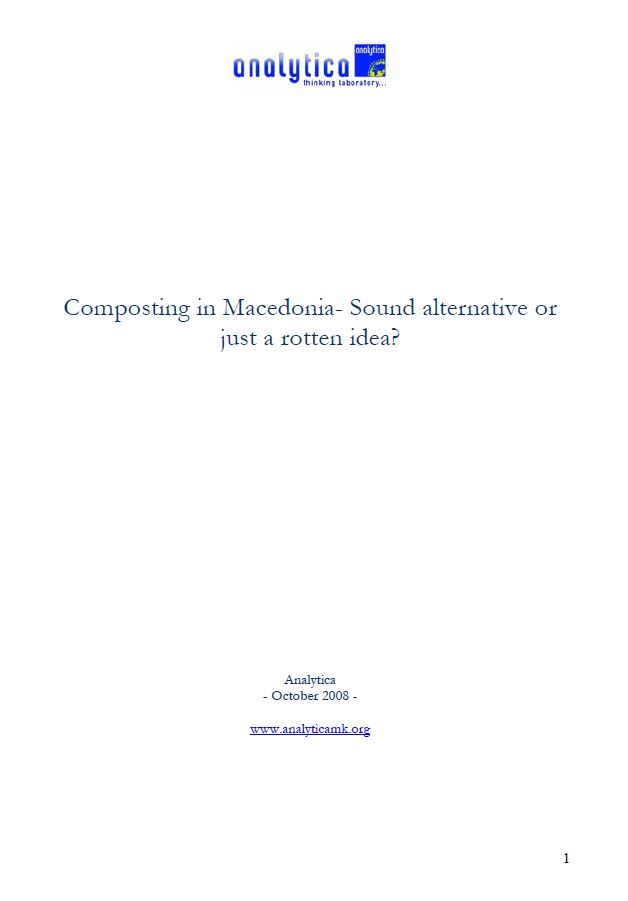Composting in Macedonia – Sound Alternative or Just a Rotten Idea?
Composting in Macedonia – Sound Alternative or Just a Rotten Idea?
Author(s): Karolina Pendovska
Subject(s): Agriculture, Energy and Environmental Studies, Environmental and Energy policy, Management and complex organizations, Environmental interactions
Published by: Аналитика Тинк-тенк Организација
Keywords: North Macedonia; composting; biowaste; solid waste; waste with organic origin; waste management; waste collection system; agriculture; greenhouse gases; policy framework;
Summary/Abstract: In the European Union (EU) with 497 million inhabitants, biowaste accounts for 30-45% of the municipal solid waste (MSW). While in Macedonia, a country with only two million inhabitants has biowaste percentages near the percentage of the EU - 26.2%. In Macedonia biowaste includes waste materials with organic (animal and vegetal) origin, like household waste, then restaurants, canteens food waste and green markets waste, as well as in the rural municipalities, agricultural wastes, wastes from livestock activities, gardening wastes and forest residues. Due to the high water content, high density (except for green waste which has low density) and the high putrescibility of this waste stream, it is crucial to be involved in integrated, sustainable waste management. The MSW and its biowaste stream produced in Macedonia is landfilled (at official landfills) and dumped at thousands of illegal dumpsites. Furthermore, there is no separate collection of biowastes, only separate collection of paper as biowaste is realized by the communal enterprises. Additionally, the rural communities with main agricultural activities do not have official waste collection systems. The treatment of the agriculture wastes depend solely on the treatment practices of the farms. Because the agriculture sector in Macedonia lacks the Good Farming Practice (GFP), non compliance to basic technical and environmental requirements is often the case with the macedonian farms. This leads to pollution of soils, water courses and emissions of greenhouse gases (GHG) on the long run.
Series: ANALYTICA - Thinking Laboratory
- Page Count: 21
- Publication Year: 2008
- Language: English
- Content File-PDF

